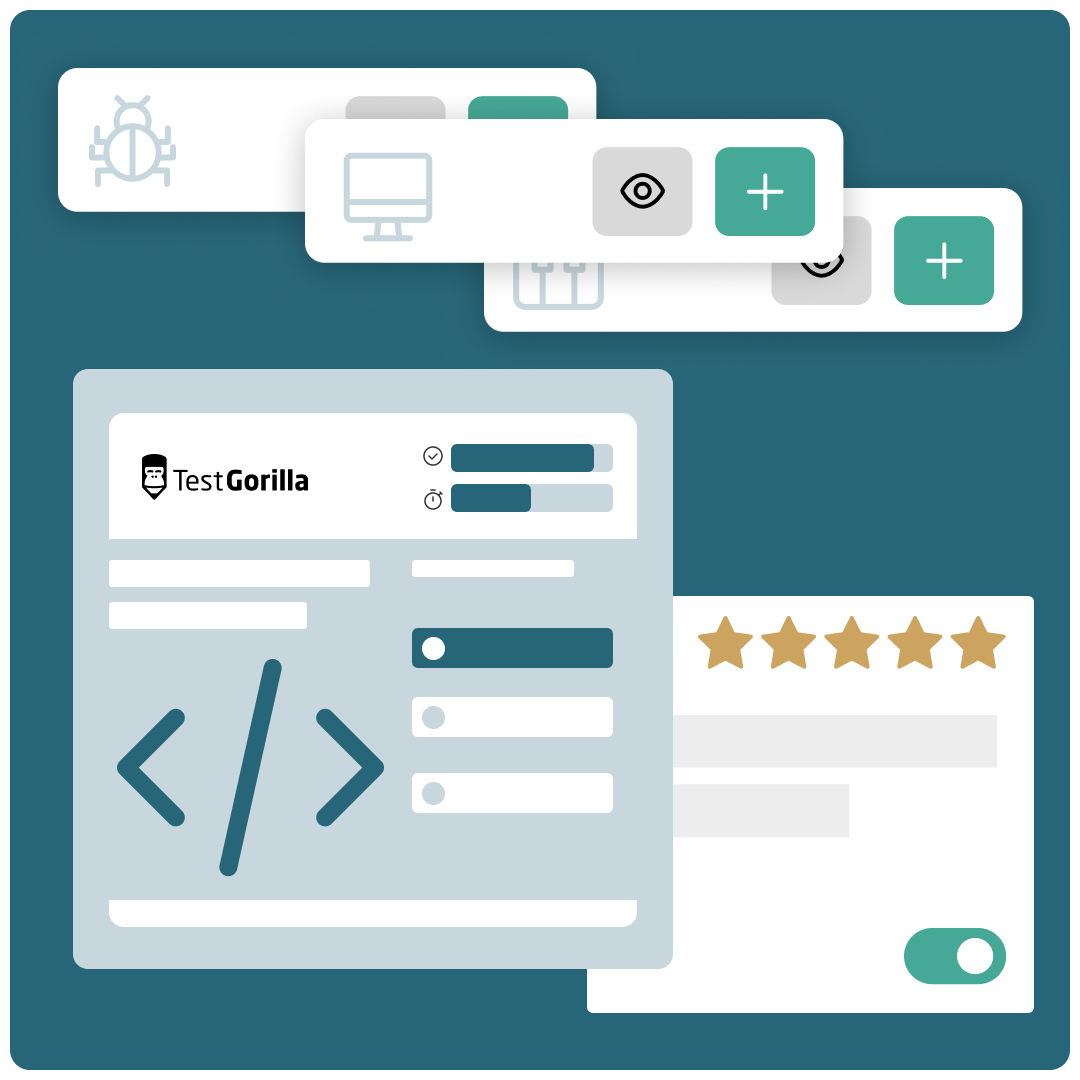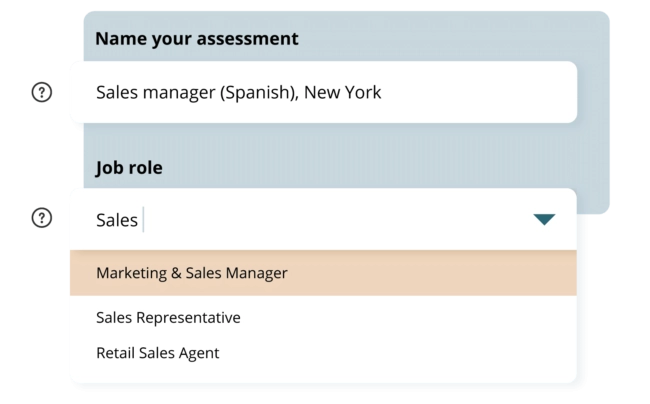PySpark skills test: Pre-employment screening assessment to hire the best candidates
Summary of the PySpark test
This PySpark test assesses proficiency across fundamentals, data manipulation, ML, and advanced configurations. This test will help you identify candidates adept at leveraging PySpark's power for big data processing and machine learning.
Covered skills
Fundamentals of PySpark
Data Manipulation in PySpark
Machine Learning in PySpark
Advanced Configurations in PySpark
Use this test to hire
PySpark developers, data scientists, data analysts, data warehouse managers, data engineers, machine learning engineers, big data engineers, analytics consultants, and any other roles requiring intermediate knowledge of PySpark.
Type
Time
Languages
Level
About the PySpark test
PySpark is a powerful open-source framework designed to facilitate scalable and efficient big data processing using the Apache Spark engine. By harnessing the strengths of Python, PySpark offers a high-level API for distributed computing, enabling seamless processing and analysis of large datasets across clusters of machines.
Hiring someone who is experienced with PySpark will help your business unlock the full potential of big data. With PySpark's capabilities, you can efficiently process vast amounts of data and derive valuable insights that drive data-driven decision-making. From handling large-scale datasets to executing complex computations, PySpark offers a range of key business benefits, including scalability, speed, versatility, and advanced analytics.
In this PySpark skills test, we assess candidates' proficiency in PySpark across four critical skill areas: PySpark Fundamentals, Data Manipulation in PySpark, Machine Learning in PySpark, and Advanced Configurations in PySpark. By evaluating candidates' skills in these areas, we will help you identify those with the expertise to leverage PySpark effectively, drive efficient big data processing, and extract valuable insights for your business.
Candidates who perform well on this test can bolster your team by tackling complex data challenges, optimizing data pipelines, and delivering actionable results. With their expertise, your business can unlock the power of big data processing and stay at the forefront of data-driven innovation.
The test is made by a subject-matter expert
Gary R.
Gary has been working in the data science field for more than three years and is proficient in the fields of machine learning and data analysis. He has a Bachelor’s degree in Economics and a Master’s degree in Computer Science. The combination of those two fields helps Gary to achieve even greater results. He is fond of computer science and loves to work on projects related to Artificial Intelligence which is, in his opinion, the future of our world.
Crafted with expert knowledge
TestGorilla’s tests are created by subject matter experts. We assess potential subject-matter experts based on their knowledge, ability, and reputation. Before being published, each test is peer-reviewed by another expert, then calibrated using hundreds of test takers with relevant experience in the subject. Our feedback mechanisms and unique algorithms allow our subject-matter experts to constantly improve their tests.
What our customers are saying
TestGorilla helps me to assess engineers rapidly. Creating assessments for different positions is easy due to pre-existing templates. You can create an assessment in less than 2 minutes. The interface is intuitive and it’s easy to visualize results per assessment.
David Felipe C.
VP of Engineering, Mid-Market (51-1000 emp.)

Any tool can have functions—bells and whistles. Not every tool comes armed with staff passionate about making the user experience positive.
The TestGorilla team only offers useful insights to user challenges, they engage in conversation.
For instance, I recently asked a question about a Python test I intended to implement. Instead of receiving “oh, that test would work perfectly for your solution,” or, “at this time we’re thinking about implementing a solution that may or may not…” I received a direct and straightforward answer with additional thoughts to help shape the solution.
I hope that TestGorilla realizes the value proposition in their work is not only the platform but the type of support that’s provided.
For a bit of context—I am a diversity recruiter trying to create a platform that removes bias from the hiring process and encourages the discovery of new and unseen talent.
David B.
Chief Talent Connector, Small-Business (50 or fewer emp.)

Use TestGorilla to hire the best faster, easier and bias-free
Our screening tests identify the best candidates and make your hiring decisions faster, easier, and bias-free.
Watch what TestGorilla can do for you
Create high-quality assessments, fast
Building assessments is a breeze with TestGorilla. Get started with these simple steps.
View a sample report
The PySpark test will be included in a PDF report along with the other tests from your assessment. You can easily download and share this report with colleagues and candidates.








